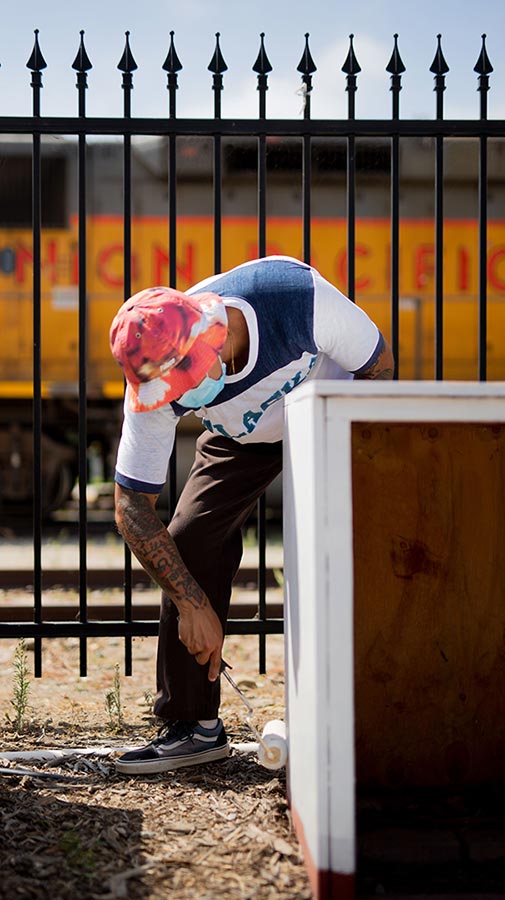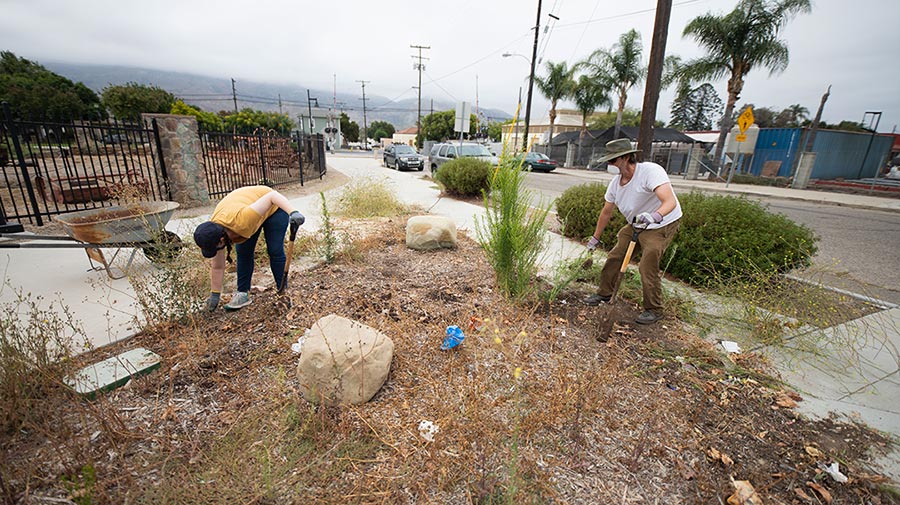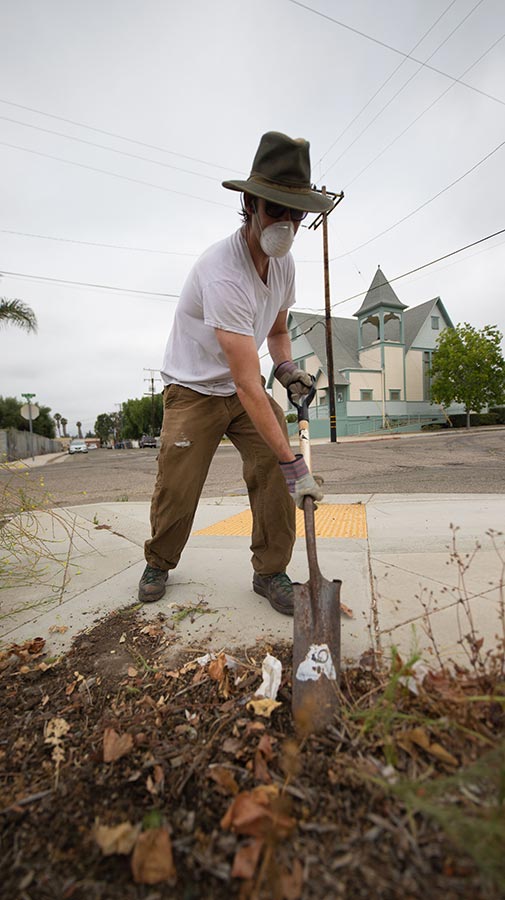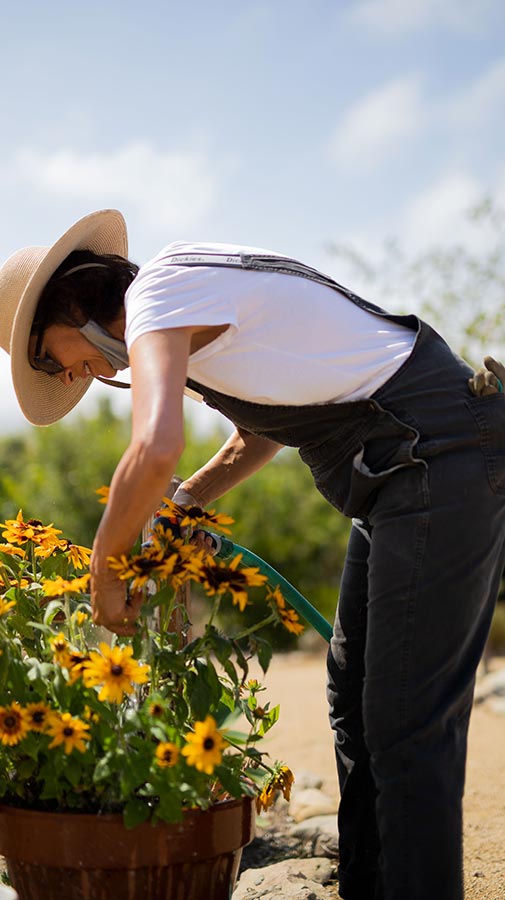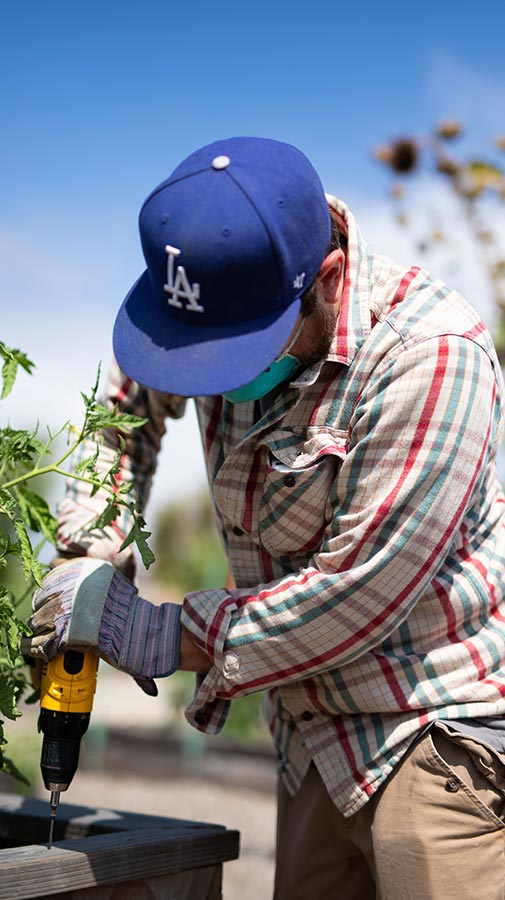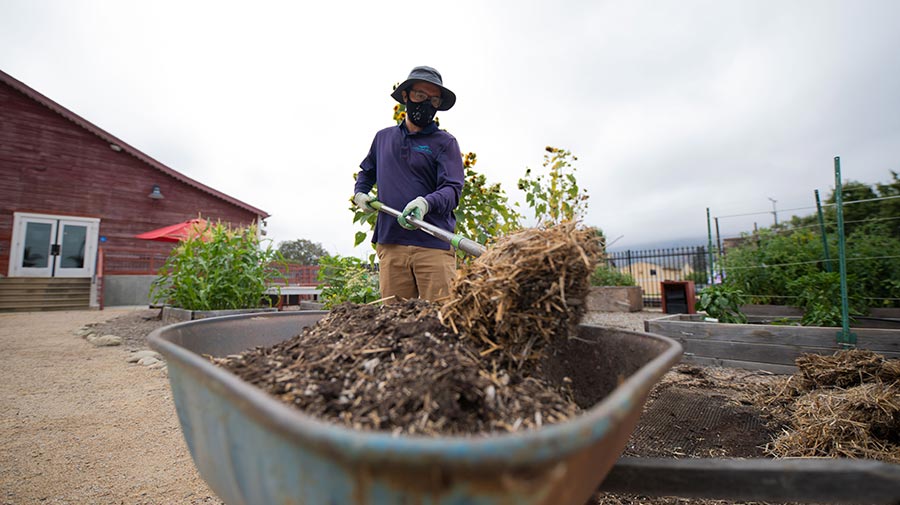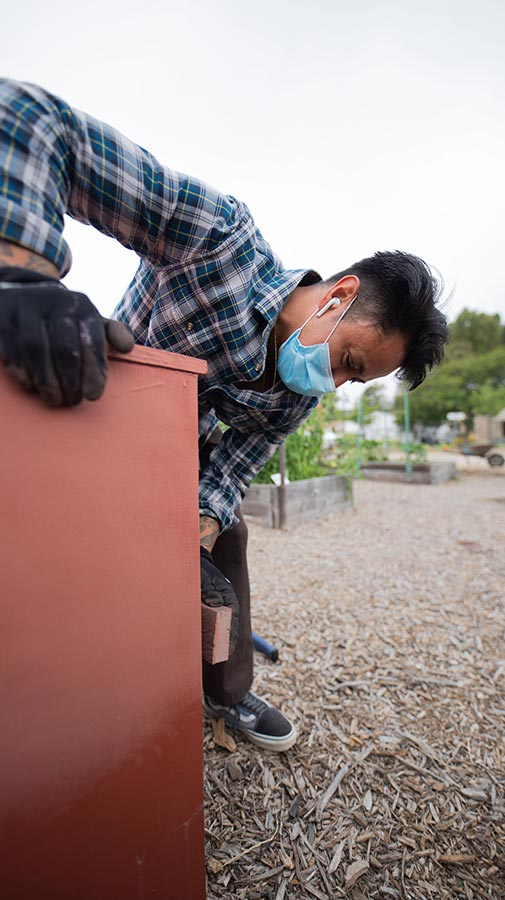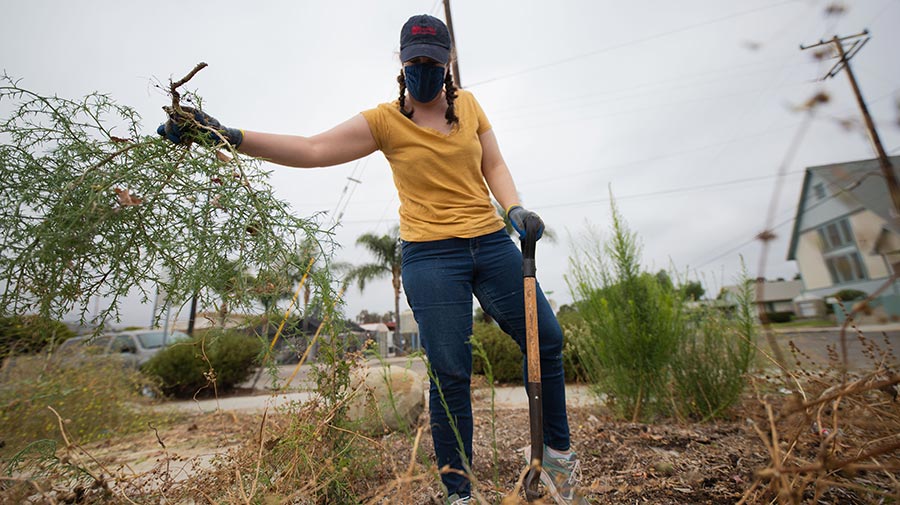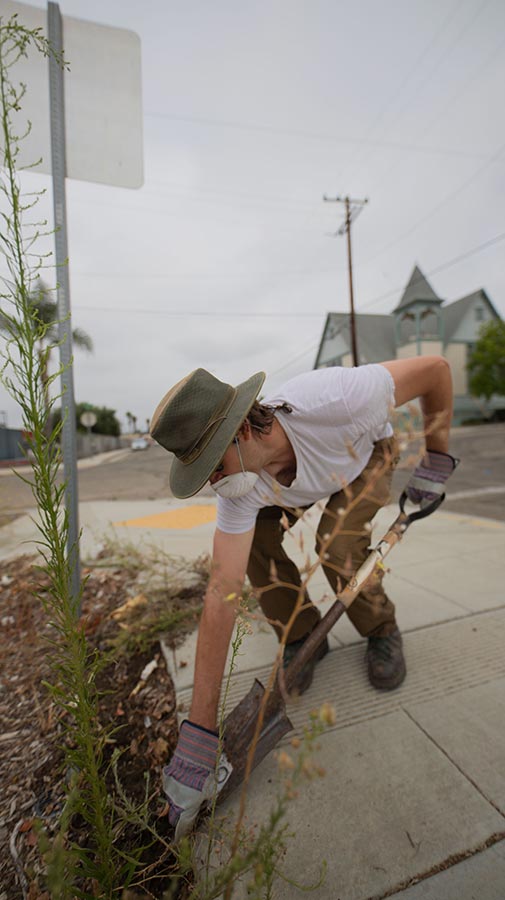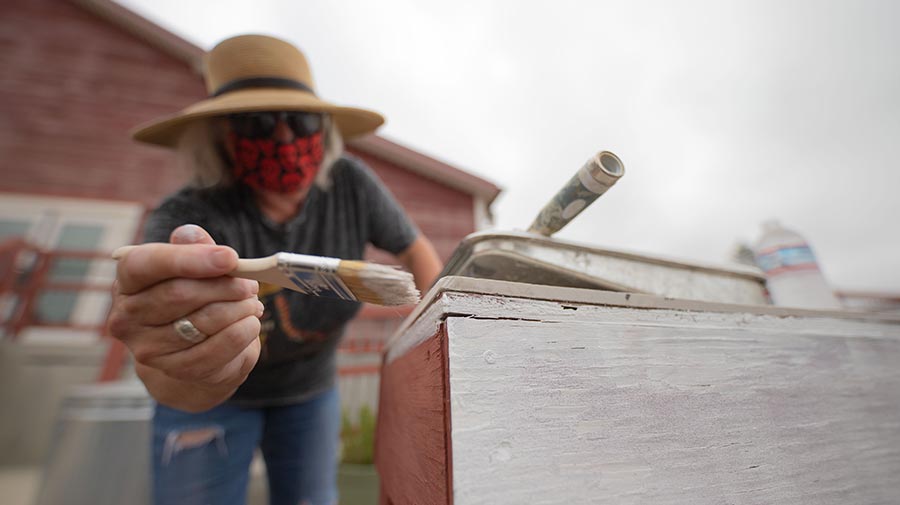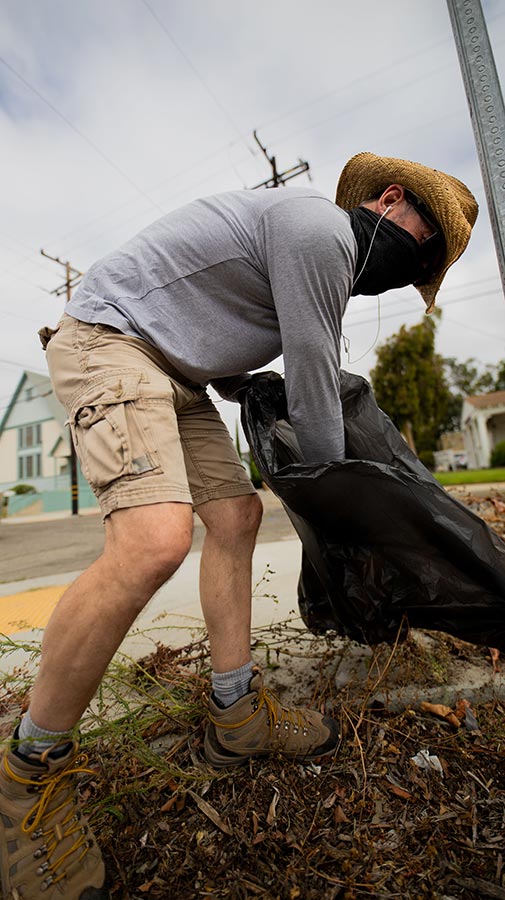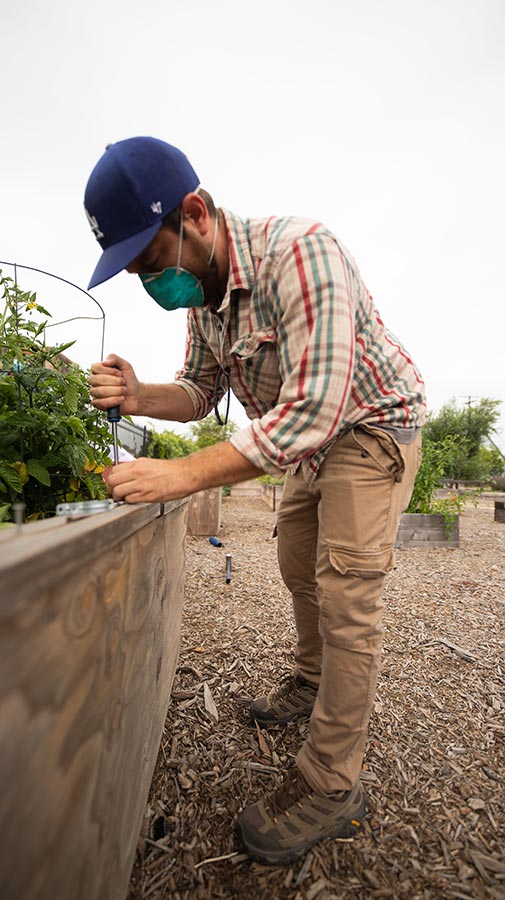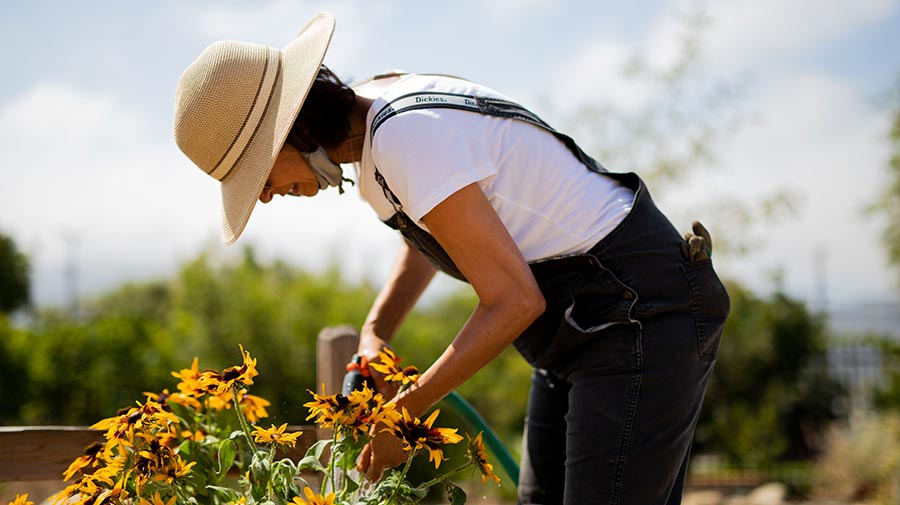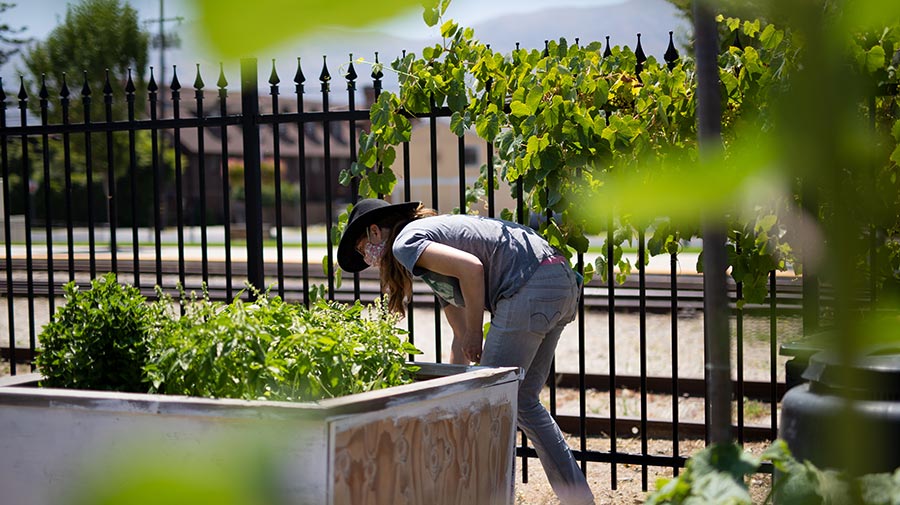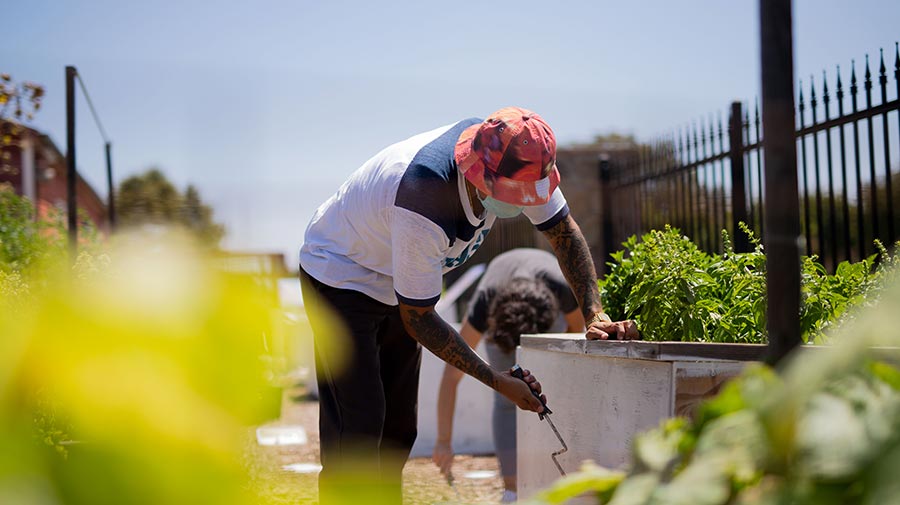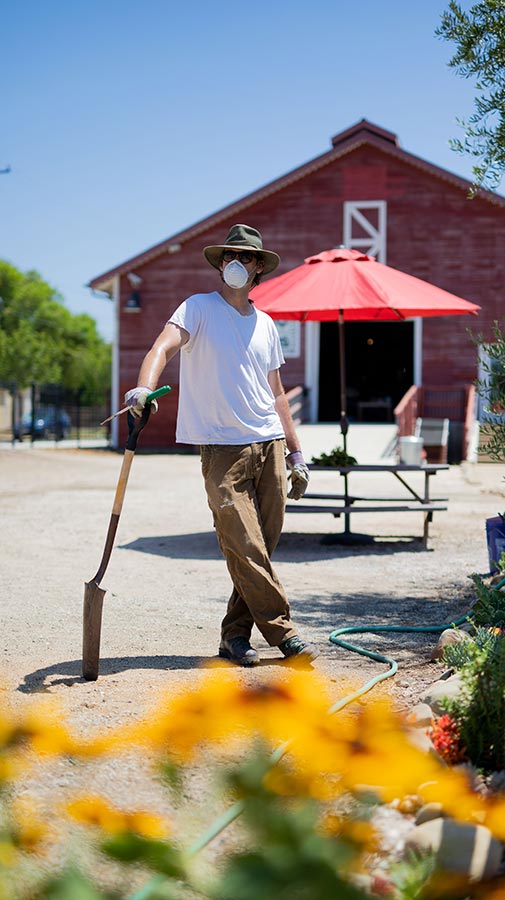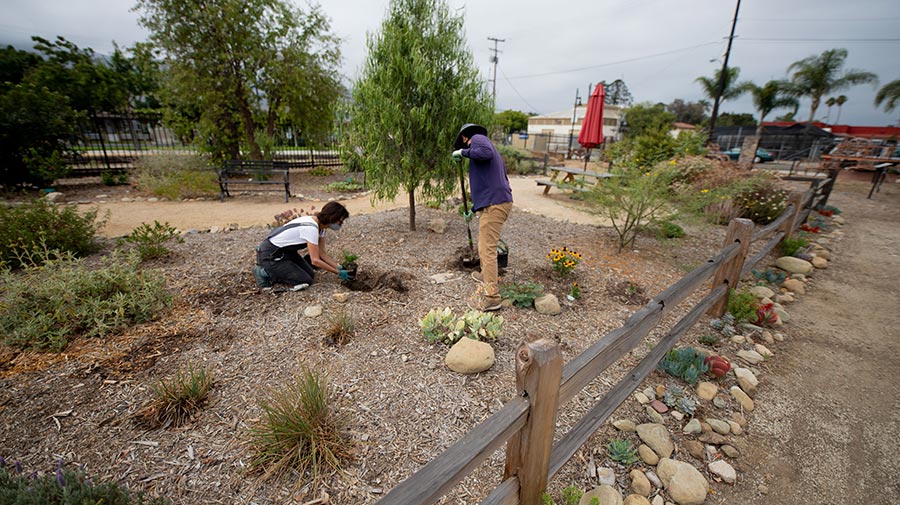Almost four-months to the day since the Museum of Ventura County temporarily closed its doors due to COVID-19, staff members had the opportunity to leave their makeshift home offices and dining room desks to reconvene at the Agriculture Museum in Santa Paula. Donning masks, gloves and maintaining six feet of distance, Melinda Pettit of the UC Master Gardeners of Ventura County led over a dozen staff members in rehabilitating the Agriculture Museum’s garden, from planting and watering to painting planter boxes and pulling weeds.
“Today, many of the museum’s staff has gathered to clean-up and refresh the vegetable and native drought-tolerant gardens at the Ag Museum,” explains Elena Waller, Agriculture Museum Manager. “Although COVID-19 has rendered the museum closed since mid-March, we’ve been fortunate to have the UC Master Gardeners continue to come out and tend to the garden. It’s very important to keep the garden tended to, otherwise it can be difficult to bring it back.”
In 2011, the Museum of Ventura County realized a decades long dream of creating a museum dedicated to the region’s farming and ranching history. Thus, came the Agriculture, which is located in the historic Mill building that dates back to 1888. The Agriculture Museum houses exhibitions and a broad collection of tractors, farming implements, a living beehive, interactive stations for children, and of course the garden.
“It feels fantastic to see so many of our staff, again. We’re suffering from Zoom fatigue, so it’s great to be outside — the weather is beautiful — and together,” says Denise Sindelar, Deputy Director of the Museum of Ventura County.
Renee Tallent, the Smith-Hobson Family Collections Manager, worked with Bob Cromwell, Education Manager, to pull weeds and clean-up the corner of 9th and Railroad. “When we started earlier this morning, the corner was covered in weeds and was inhospitable, and now it’s ready to be planted,” says Renee. “Today was a great opportunity to get outside of our isolated homes, see each other, and feel really good about the work we’re doing.”
An energized Bob Cromwell felt similarly. “It’s awesome to be out here on this gorgeous day with staff representing all corners of the museum. For most of us, this is the first time we’ve seen each other in person since March! It has genuinely lifted up our spirits to see each other and be supporting the mission of the museum.”
Bob Cromwell and museum educator Steven Krystek have been hard at work creating Virtual Learning Modules since the start of the pandemic. Presented in part by the generous support of Montecito Bank & Trust and accessible for free on the museum’s website, each module covers a specific topic, from our Mediterranean climate ecosystem to nature journaling, and includes activities that the entire family can participate in from the comfort and safety of their home. In Virtual Learning Module #2: How Kids and Families Help on the Homefront, readers learn about Victory Gardens and their importance on the homefront during war or even times like these, as well as how to start their very own Victory Garden from simple household items.
“Starting a garden, especially at a time like now, can be mentally and emotionally stimulating for people. It’s a therapeutic activity, and for me I gain a lot from just being outside and working in the dirt. It’s satisfying to plant something and see it grow,” says Melinda Pettit. “I came here as a child when it used to be The Mill, so this location has a special significance to me. I feel very honored that I get to work in the garden at the Agriculture Museum.”
“In addition to the much-needed gardening and in-person teamwork, today is also a great reminder to the community that the dedicated museum staff is still here working for them,” says Eric Knight, Development Director. “We are grateful for you, our supporters. We are grateful for every visitor, member, every donor, every schoolchild who has been here for a field trip. We’re grateful for our Business Club members, and our sponsors. Your support ensures that the Museum of Ventura County can continue telling the stories that exist solely in our collections and archives.” Consider making a contribution today or becoming a member of the MVC family.


